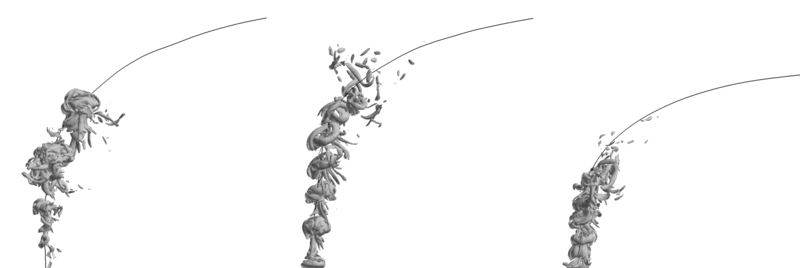NEW UPDATE FOR 2025: Due to long term funding uncertainties and my future plans I am no longer accepting PhD students for 2025 but will consider 1 year MS (with thesis) funding.
the rest of the comments below are unchanged but may no longer be applicable for MS students
____
General Announcements for Students applying for a Ph.D. in CCL/AE (contents not fully updated since 2020):
As of Fall 2022 there are no planned opening for PhD students till Fall 24 (due to uncertainty in long term funding). Only MS with thesis options (for possible 1-year of funding) are being considered for Fall 2023
- Full application has to be completed with AE to be reviewed for admission and/or aid
- Admission into GTAE is decided by a Graduate Admission Committee
- Only those who are admitted will be considered for Financial Aid
- For admission into the Fall semester, funding decisions are made only around January
- No response to emails before January will be made
- it is recommended that students who have completed their application package to GTAE contact Prof. Menon in December or January
- CCL does not accept applications for Spring semester admission
The research in CCL employs many in-house codes that use advanced programming paradigms and therefore, all applicants are required to be very familiar with Fortran (F90, 95, 2003) and some C/C++.
Familiarity and Knowledge in Linux OS and Fortran Programming are required to be considered for graduate studies in CCL.
Experience working with commercial codes by just pushing buttons is not considered relevant although such an experience on top of proven programming skills would be.
Ability to do parallel programming would be considered a plus as well. Other relevant libraries/software we use are:
- MPI, OpenMP and other parallel software (e.g., GPU, Intel Phi)
- XDMF
- HDF5
- xml-fortran
- Cantera
- Python
- CMake
Ability to work with these libraries and/or software, and to write and debug large codes are strict requirements. Since these software may be unfamiliar to you an explicit and HONEST assessment of your ability is expected from all applicants if you contact CCL for admission and/or support.
Most of these software can be learned in CCL, but in order to be considered people applying for Ph.D. in CCL must enjoy analytical and numerical studies that not only require extensive programming on a regular basis but also working with such software.
General Areas of Research and Future Focus
CCL is focused primarily on computational modeling of turbulent combustion phenomenon as it occurs in gas turbines, rockets and scramjet engines. To a lesser degree there is some research focus on turbulent mixing and modeling but NOT on CFD. In all these effort we are focused on applications using Large-Eddy Simulation techniques and to a lesser extent on hybrid methods. We rarely do any research in Aerodynamics, Aerothermodynamics and conventional CFD turbulence modeling. If you are interested in these related areas you should apply to other faculty.
CCL team members are required to be self-motivated and willing to work on challenges that have not been attempted before and all are required to work in team programs, although each person will be individually tasked to meet his or her goals. Timeline to meet their respective goal will be strict.
CCL accepts student only for computational studies. Students with experimental research interest should contact other relevant faculty.
1. CCL typically accepts only in Computational Combustion Area only - this includes Turbulent Combustion as well
2. Students with already a MS may be given higher priority but they have to show graduate caliber work ethics.
3. Students for MS without thesis will not be considered for funding except under special circumstances.
4. Time commitment is large: PhD after MS ~ 4+ years and PhD after BS ~ 5+ years. Be aware of this when you apply
5. Beyond the first year, support will depend upon performance assessment.
General Notes for Summer Training and Short Visits to CCL
1. Applications from undergraduates for any University (in US or abroad) for summer visit will ignored since such visits are not feasible due to the nature of research in CCL.
2. Undergraduates from Georgia Tech are accepted for summer if they are willing to commit for a longer term (as opposed to a single semester) since research in CCL takes substantial time and effort to learn and contribute.





